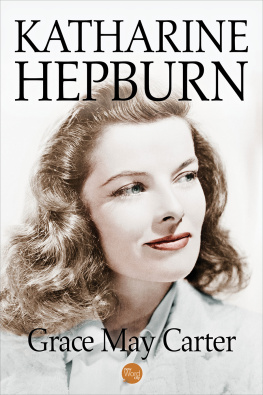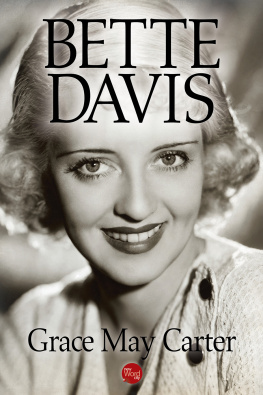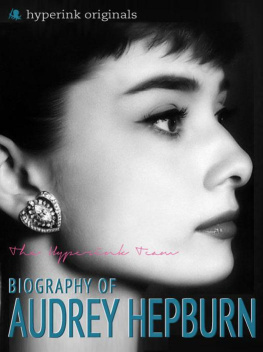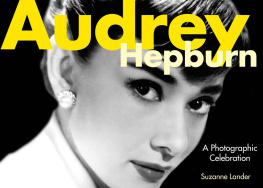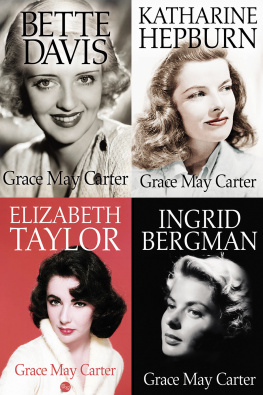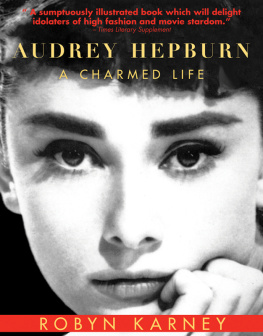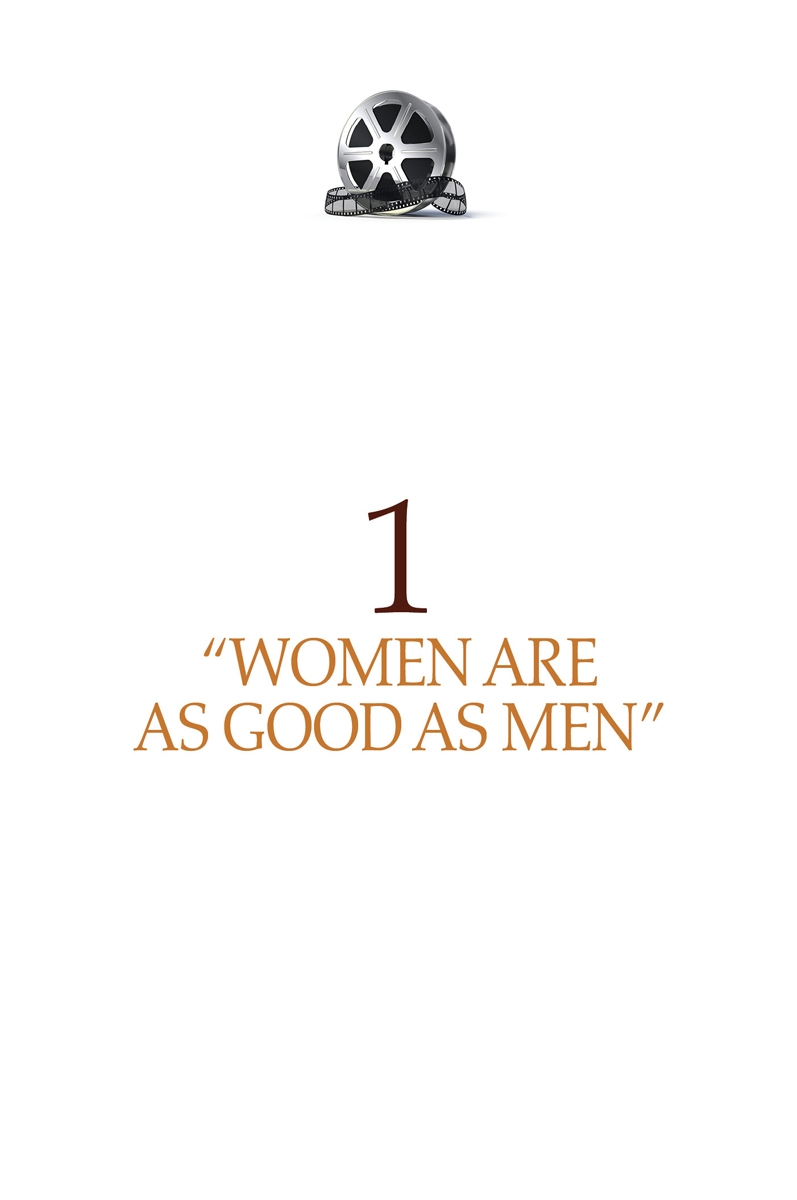In a film and stage career that spanned the better part of a century, Katharine Houghton Hepburn lived life just as she wanted. The list of adjectives used to describe her bold, stubborn, self-sufficient, witty, beautiful only begin to hint at the complex woman who entranced audiences around the world, exerted a singular influence on American popular culture, and challenged assumptions about how women ought to behave on screen and off.
Her acting achievements alone earned Hepburn a place among the brightest stars of the twentieth century. During a marathon career that lasted sixty-six years, she appeared in a staggering forty-four feature films, thirty-three plays, and eight television movies everything from screwball comedies to period dramas. She was nominated for twelve Academy Awards for Best Actress, winning a record four times, and was inducted into the American Theater Hall of Fame. Many of her movies have become classics, including four The African Queen, The Philadelphia Story, Bringing Up Baby, and Guess Whos Coming to Dinner that rank among the American Film Institutes 100 Greatest American Films of all time. Two others, Adams Rib and Woman of the Year, were included in the AFIs list of the Greatest American Comedies Ever.
Yet, Hepburn was far more than a successful actress. With her distinctive, aristocratic voice and forceful personality, she proved to generations of fans that women could be as assertive, razor sharp, and successful as any man. What she brought us was a new kind of heroine modern and independent, wrote film historian Jeanine Basinger. Her insistence on wearing pants wherever she went changed the way women dressed. To commemorate her influence on womens fashion, the Council of Fashion Designers of America in 1986 presented her a lifetime achievement award.
In spite of her many accomplishments and awards, Hepburn was often criticized as not being a particularly versatile actor. Picture Katharine Hepburn in every movie she ever starred in and ask yourself if shes not playing, essentially, the same part over and over, said the playwright and author David Macaray.
Hepburn did not disagree. I think Im always the same, she told a journalist in 1991. I had a very definite personality, and I liked material that showed that personality. A more pointed appraisal came from Dorothy Parker, who attended one of Hepburns early stage appearances and famously proclaimed that her performance ran the gamut of emotion from A to B.
Despite her reputation as a proto-feminist, Hepburn later in life was sharply critical of womens sexual freedom and lamented the loss of the virile male hero. Critics noticed that many of her characters ended up in subservient roles restored to a safe position within the status quo, as film scholar Andrew Britton put it. The dire or merely domestic outcomes of so many of her movies can be easily dismissed as the requirements of a less enlightened age, wrote Claudia Roth Pierpont in The New Yorker, or as a sign of the ongoing bewilderment about how a truly modern womans story might conclude.
Off screen, Hepburn was fiercely private, and for many years rarely gave interviews or rubbed shoulders with fans. She rejected Hollywood society and attended the Academy Awards just once to present an award to a friend, producer Lawrence Weingarten, in 1974. Friends and family said she could be controlling, selfish, and self-righteous but always, they would quickly add, filled with an almost Herculean zest for life.
Hepburn was married, briefly, in her twenties. She had an affair with aviation tycoon Howard Hughes and, it was whispered, with several women. Most famously, she maintained a secret twenty-six-year relationship with her frequent co-star Spencer Tracy, who remained married to someone else. Most of this we know from Hepburns 1991 autobiography, Me: Stories of My Life, which some critics complained showed a lack of introspection and empathy and shrewdly evaded or revised important biographical details. But the book was an enormous hit, staying at the top of bestseller lists for more than a year.
How did Hepburn develop into such a powerful, enigmatic woman who, even today, remains so deeply embedded in the American psyche? Her love affairs and life-long friendships certainly played a crucial role, but her biggest influence, without a doubt, was her parents, passionate and determined people who diligently instilled in her many of the qualities that would later make her world famous.
Both of Katharine Hepburns parents were progressive New Englanders in an age of stodgy conservatism. Thomas Norval Hepburn, known as Tom, born in 1879 outside Richmond, Virginia, met his future wife, Katharine Martha Houghton - Kit - in 1901 when she visited her sister Edith at Johns Hopkins University in Baltimore, Maryland, where they were both attending medical school. Kit, Edith, and their younger sister Marion came from a prosperous lineage: Their grandfather, Amory Houghton Sr., was the founder of Corning Glass Works. Kit was immediately enchanted by Tom, a tall, brawny redhead. When her sister pointed out that he had little money, Kit exclaimed, Id marry him even if I knew it meant Id die in a year and go to hell!
At the turn of the century, it was rare for women to go to college, but Kits mother, Caroline Garlinghouse Houghton, insisted that her three daughters do so; she wanted them to be educated and independent. Caroline and her husband, Alfred Houghton, both amateur musicians in Buffalo, New York, raised their girls to be agnostic free-thinkers, making them heretics in the eyes of the rest of the conservative, Episcopalian Houghton clan.
Alfred, who suffered frequent bouts of depression, was fired from the Corning glass factory, run by his older brother, Amory Jr., for chronic lateness. One day, he was found dead on railway tracks, killed by a self-inflicted gunshot to the head.
To add to the tragedy, not long afterward, Caroline was diagnosed with stomach cancer. Knowing she did not have long to live, she told her daughters they must go to college. She drove sixteen-year-old Kit, the oldest, to Pennsylvania to visit Bryn Mawr College.
When Caroline died, the girls Uncle Amory suggested they skip college and go to finishing school to learn to be ladies. Anticipating interference from her conservative family, Caroline purposely had not named legal guardians. When Kit was old enough to appoint her own, she threatened to name an adversary of her uncles unless he allowed her to attend Bryn Mawr.
Grudgingly, Amory relented. But he used his control over Kits finances to make her life difficult. At one point he sent her a letter berating her for borrowing money from a friend in an attempt to free herself from his influence.... you are an extravagant, deceitful, dishonest, worthless person, he wrote, signing it, Disgusted, your affectionate uncle, A. Houghton, Jr.
Clearly, Kate Hepburn was the product of a dramatic family, with, on her mothers side, two generations of smart, strong-willed women who carved a wide path for her to follow. When Caroline Garlinghouse died, she was thirty-four years old, Kate wrote in her memoir. She must have been a very strong character. My mother talked a lot about her: her beauty, her strength of character her determination that the daughters get an education... I can see Mother to this day as she described herself sitting next to her mother. Her mother was lovely-looking. And I felt the enormous effect she must have had on my mother...

